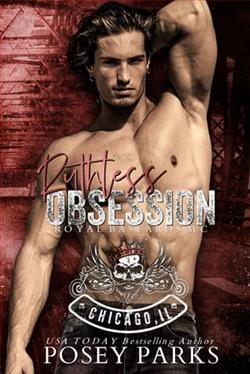Page 71 of High Season
Hannah turns back, grateful as Noah starts to chatter about how Uncle Nic is going to teach him how to dive and Isla slobbers happily over her lollipop. They’re a good team, she and Eric, even in thirty-degree heat. Even after spending seventeen hours in a small metal box together.
She’s glad that he’s here, glad that she has him to come back with.
Without him, she would never have come back at all.
For years after she left this place, Hannah did not return.
She couldn’t stand it. Her home had been so marred by tragedy, so overshadowed by the arrest of her best friend.
She had moved to England. Thrown herself into her studies, living in an unfamiliar city—not Oxford, in the end, but Manchester—drinking cheap pints in student bars and staying in the library until late at night. She got a waitressing job in an upmarket pizzeria, and the Christmas shifts gave her a good enough excuse to avoid going home at the end of autumn term.
She met Eric at a silent disco at the student union midway through her first year and slept with him the same night, with an impulsiveness and clarity that took her by surprise. They were an item right away, finding each other on nights out to go home together, and meeting each other’s flatmates, and missing seminars to sleep in late, and going on dates to chain restaurants that did midweek deals. It was so unlike her relationship with Blake that sometimes she couldn’t quite believe it. She would sometimes lie awake listening to Eric breathing, unable to believe how easy it had been. She let herself, for the first time in over a year, feel happy. Hopeful. But when Eric would ask when he’d meet her parents, Hannah always had an excuse.
It wasn’t until Mark and Marie decided to retire that Hannah could stand to come back. Against all odds and everyone’s expectations, the dive shop had begun to flourish after Tamara Drayton’s death. The media storm had brought attention to their strip of sea: a developer bought land just down the coast and built a mega-hotel; locals who owned smaller, cheaper houses on the other side of the hill seized the opportunity to rent out holiday lets to people who had seen the impossible blue of the sea on news reports. Suddenly, after years of struggle, the dive shop was busy—just as Mark and Marie were ready to wind down.
Eventually, they had decided to pass the family business on to Nic. A trusted friend would manage the day-to-day running until Nic was ready to take over, and Mark and Marie would receive a split of the future profits. It would be enough for them to retire and live more comfortably than they had for years.
Hannah was twenty-three then, and had just found out she was pregnant. It was an accident; she was only partway through her accountancy exams, and she and Eric were living in a small flat up three flights of stairs, completely unsuitable for a baby.
Still, there had been no question that they’d keep it. They had gone to France that summer for the first time, and Hannah’s mother had been delighted, pressing her hand against Hannah’s rounded stomach as her dad made jokes that weren’t really jokes about how he’d have liked to have met his daughter’s boyfriend at least once before he knocked her up.
Since then, they’d returned almost every year. Each time, the memory of that terrible summer had faded just a little bit. Motherhood was so consuming, so exhausting, and with Eric working long hours as a teacher at an inner-city comprehensive, holidays in the Côte d’Azur became something that they looked forward to. Time as a family. Time to forget the stresses of home—the fact that they never quite seemed to have enough money, or that Hannah had lost touch with all her university friends when she’d been changing nappies and they had still been out partying, or the nagging sense that she should really go back and finish her accountancy qualifications, or at least get another job, but then childcare was so expensive, and could they really afford it, and what was the point of spending all day in an office away from her kids if they would only just about break even?
But when they arrived at the sea, all that faded away. This tiny town, which had always felt so claustrophobic, so stifling when Hannah was a child, started to feel like an escape. She began to feel the muscles in her shoulders release every time she drew within sight of the famously blue sea.
Her mother is waiting outside the house when they pull in.
“You made it!” she says as they clamber, sticky and sweat-soaked, out of the car.
She reaches out her arms for Noah, still young enough not to be embarrassed by open displays of affection. Mason hangs back, shy all of a sudden, sullen, and Hannah feels a brief twinge of sadness at how quickly it all passes, that lack of self-consciousness and easy affection of childhood. In just a few years, Noah will be a teenager, too, and Hannah will no longer be able to reach either of her sons in the way that she used to.
“Where’s my little girl?” says her mother. “Oh. There she is. Come toGrand-mère.”
She scoops Isla out of the car seat, showering her with kisses.
“Look at you. You all look exhausted. Come inside, quickly. Granddad’s in the house.”
They let Noah fly past them, Mason trailing behind. Eric gives his mother-in-law a brief squeeze before hauling two suitcases out of the boot and following his sons.
The second they’re alone, Marie kisses her daughter on both cheeks.
“You look tired,” she says.
“You would, too, after that car journey.”
“I didn’t mean it like that,” says Marie, but she doesn’t elaborate any more.
“Let me just get some of the cases out,” Hannah says. “I’ll be in in a sec.”
Her mother doesn’t move.
“I wanted to tell you,” she begins, “before anyone else does.”
She sways Isla back and forth on her hip, a movement that seems instinctive. She would have rocked Hannah like that once, unthinkingly, as if she could soothe anything away.
“Josie Jackson is back,” she says. “Your father saw her yesterday, down near the beach.”
Hannah bends over a wheelie case, pretends to be struggling to release the handle. It gives her a second, just long enough, for the bolt of unease to pass.















